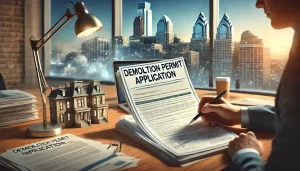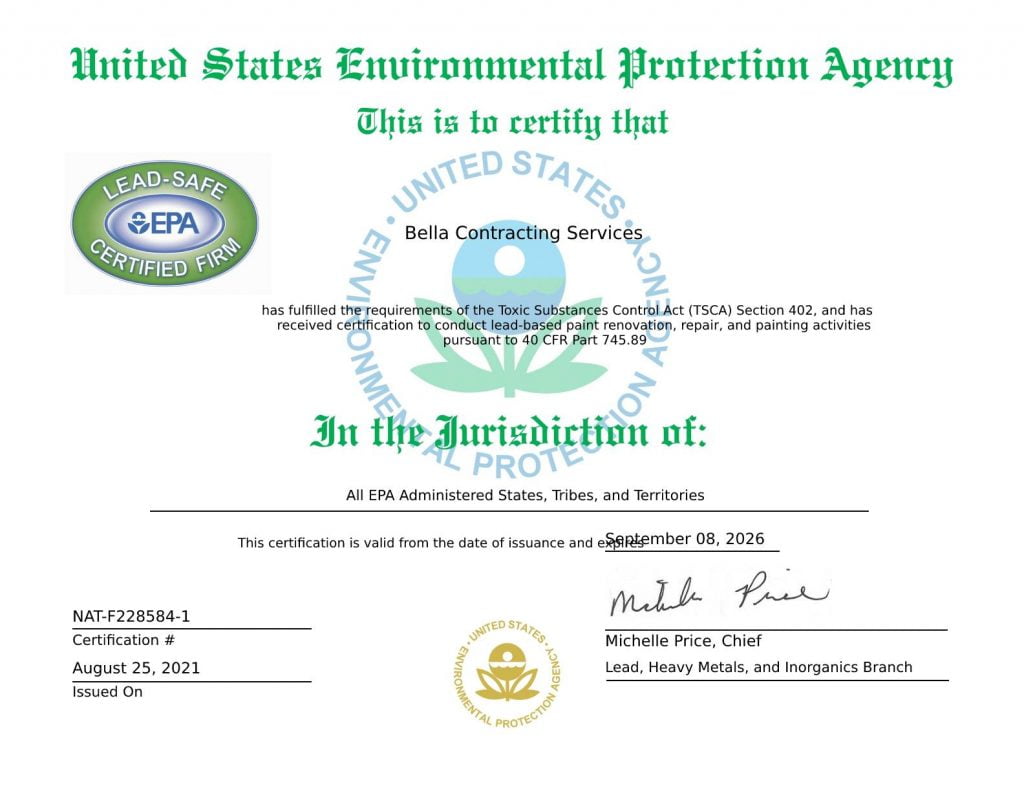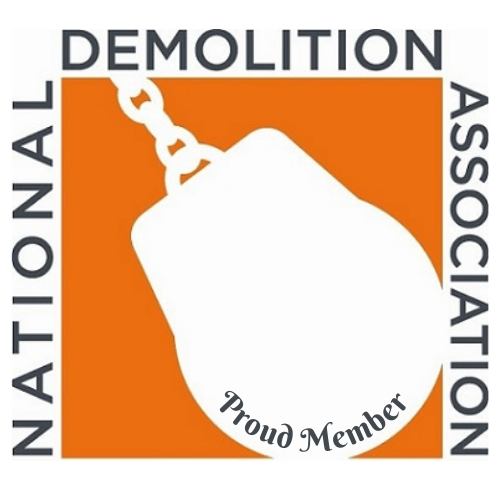Demolition projects in Kentucky require more than just a sledgehammer and some elbow grease – they also need the right permits. Knowing what kinds of permits are needed for a demolition project, when to obtain them, and how to comply with regulations is essential for completing any job safely and efficiently. For those looking to understand the role of permits within the state’s demolition industry, this article provides an engaging look into the process of obtaining approvals from local government agencies.
Demolishing structures can be daunting tasks; it requires careful planning and consideration before beginning any project no matter how big or small. In addition to complying with safety standards and other requirements, knowing which permits are necessary helps ensure that demolitions occur without disruption or legal complications. With many laws dictating which types of documents must be obtained prior to starting work, being informed on permit requirements is key to staying ahead of potential issues down the line.
The challenge then becomes finding out exactly what forms need to be filled out in order to begin a demolition project in Kentucky. Fortunately, there are several resources available that provide detailed information on all necessary paperwork associated with any given task. By understanding the importance of these documents as well as where they can be found, individuals involved in demolition jobs across the state will have greater success in meeting their goals quickly and effectively.
What Is A Demolition Permit?
Demolition permits are a critical part of any Kentucky demolition project. They provide the oversight and structure needed to ensure that all regulations and laws pertaining to building safety and environmental protection are followed during the process. Allusion can be made to them as being like a bridge between what is expected from both sides in order for the job to be done safely, efficiently, and legally.
The process of obtaining a permit requires certain steps such as submitting an application, providing documentation about the proposed demolition plan, meeting with local officials, and ensuring that all necessary paperwork is completed correctly. During this time, it’s important for contractors to stay organized and on top of their responsibilities or else face delays or rejection from authorities due to incomplete forms or incorrect information provided. Once approved, they must also abide by specific guidelines regarding noise levels, debris management, air quality monitoring and more in order to protect those living nearby while still completing the project effectively.
It is essential for anyone who wishes to take on a major demolition project in Kentucky knows that acquiring a permit is not only mandated by law but also offers valuable services which help keep everyone safe throughout the entire process. With proper preparation and understanding of these requirements comes peace of mind knowing that you have taken every precautionary step possible towards completion of your task at hand.
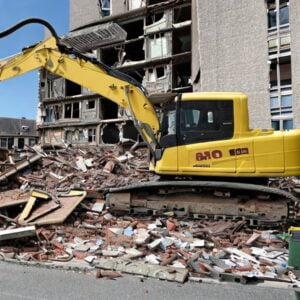

Types Of Demolition Permits In Kentucky
In Kentucky, there are several types of demolition permits to be aware of for a successful project. Depending on the scope and size of your work, you may need one or more of these documents in order to move forward with the job at hand.
The first type is an emergency demolition permit which can only be issued if there’s an immediate danger posed by a building that has become structurally unstable. This document allows contractors to quickly take action and get started on the project without having to wait through regular permitting procedures. It also requires approval from local authorities who must inspect the site before any work begins.
The second kind is called a standard demolition permit and is required when demolishing residential or commercial buildings regardless of their condition. In addition to providing necessary information about the proposed plan and safety measures being taken, applicants will likely have to adhere to additional regulations such as air quality testing and debris removal depending on what type of structure they’re dealing with.
As long as all steps are followed correctly, both kinds of permits provide contractors with legal protection during their projects helping ensure everyone involved remains safe throughout the process while still getting results efficiently. With this knowledge in mind, anyone looking to take on a major demolition task in Kentucky should familiarize themselves with these requirements so that their plans and preparations go off without a hitch.
The Permit Application Process In Kentucky
The process of obtaining a demolition permit in Kentucky can seem daunting, but with the right preparation and guidance it doesn’t have to be. Like any tricky task that needs to get done, approaching this one step-by-step is key to success.
First off, applicants need to make sure they’ve filled out all necessary paperwork correctly and provided any supporting documents requested by local authorities. This includes details about the building itself as well as plans for debris removal and safety precautions during the project’s duration. Once everything has been submitted and reviewed, an inspection must happen before approval is granted or denied.
TIP: Make sure you keep track of deadlines throughout the application process; missing them will delay your progress and may even lead to additional costs down the line. Additionally, if you’re ever unsure at any stage of the process don’t hesitate to reach out for help from experienced professionals who can answer questions quickly and accurately so that your project runs smoothly from start to finish!
The Steps to Applying for a Wrecking Permit
- Have a proof of insurance, for starters
For the demolition, you must have insurance documentation. The coverage ought to cover:Physical harm
based on each accident
Property harm
Compensation for workers
Document should read: LFUCG acts as holder and pays for destroying - Obtain a grading licence
Project-specific factors determine the kind of grading permit required. You must speak with Engineering to obtain a grading permit:4th Floor, 101 E. Vine St., Lexington, Kentucky 40507 (859) 258-3410 - Inform the proprietors of the nearby homes
You can get a list of addresses that are 50 feet or less from the property line from our office. The property owners must receive a letter informing them of the planned demolition. - Distribute a report about asbestos.
A private organisation must be contacted for an asbestos report. If the report is accurate, an evidence of abatement will be needed. - Evidence of contractor authorization
a letter authorising the contractor to carry out the work, signed by the owner and/or their representative. The owner or designated agent’s signature is required on the letter. - Number of sewer plug
possess the Water Quality-issued sewage plug number. Contact them at: to get the number.125 Lisle Industrial Avenue, Ste. 180 Lexington, Kentucky 40511 (859) 425-2400 - Prepare a demolition strategy
The application must be accompanied by a demolition plan. This must be a detailed strategy outlining your approach to putting the building in place. - Complete the demolition applicationDeliver all supporting materials and the application to Building Inspection:2nd Floor, 101 E. Vine St., Lexington, Kentucky 40507Or apply online
The Role Of Inspections In Demolition Permits
Inspections are an essential part of the permit process in Kentucky, as they ensure that all safety requirements and regulations have been met before a project can move forward. The inspection typically covers everything from site plans to demolition techniques, making sure that the contractor has taken all necessary precautions to protect workers and surrounding areas during the job. Not only do inspections keep everyone safe but they also provide assurance that any potential environmental hazards will be avoided or mitigated properly.
Beyond these important safety aspects, inspections also serve another purpose: they give local authorities a chance to check that the proposed work is actually feasible given the existing conditions. This includes verifying whether or not any special permits are needed for certain tasks such as hazardous material removal or noise control measures. All of this information helps make sure that there won’t be surprises down the line which could delay progress or add additional costs to a project’s budget! Ultimately, it’s clear why inspections play such an important role in securing demolition permits — without them projects would never get off the ground!
Common Issues With Demolition Permits In Kentucky
The process of obtaining a demolition permit in Kentucky can be fraught with complications. From the cumbersome paperwork to unexpected issues that arise during inspections, it’s easy for any project to run into delays or complications. When these roadblocks appear, they require an experienced hand and sharp eye to navigate them — something not all contractors are prepared for!
One specific issue is often encountered when dealing with hazardous materials on site: although regulations exist stating how these must be handled and disposed of, there are still numerous cases where workers fail to follow proper protocol due to lack of training or oversight. This creates dangerous situations both onsite as well as downstream if improper disposal takes place. In addition, some areas may have additional regulations governing noise levels which could potentially delay projects if not taken into account from the outset.
It’s clear why demolition permits are so important in Kentucky: they provide assurance that safety requirements will be met while also allowing local authorities to ensure that proposed work is actually feasible given existing conditions. It pays off immensely then for contractors to partner up with reliable professionals who understand the ins-and-outs of the permitting process and can guide them through any potential pitfalls along the way.
Frequently Asked Questions
What Is The Average Cost Of A Demolition Permit In Kentucky?
Demolishing an existing structure and replacing it with a new one is not an easy task. It takes careful planning, preparation and permits to ensure the safety of all involved in the project. When considering demolition projects in Kentucky, the average cost of a permit must be taken into account. So what is the typical price for such permits?
In general, demolition permits obtained from local building departments will typically range anywhere between $50-$500 depending on your particular municipality’s requirements. This fee can go up if additional services are required or if there are any complications related to asbestos abatement or other hazardous materials that need to be addressed first before demolitions begin. The exact costs may vary based on the size and scope of your project as well – larger buildings often require more resources during deconstruction process which can add up quickly.
When contemplating a demolition project in Kentucky, it’s important to understand exactly what kind of financial commitment you’re getting yourself into when obtaining these necessary permits. Doing some research ahead of time could save you money down the road by ensuring that you get the most appropriate permit for your needs without overpaying.
What Are The Legal Requirements For Obtaining A Demolition Permit In Kentucky?
Getting a demolition permit in Kentucky is not as hard as you might think. There are specific legal requirements that must be met for obtaining one, and if done correctly the process can go quite smoothly. Here’s what to know about getting your demolition permit:
1) You will need two official documents from the state of Kentucky – an application form and a plan-of-action form. Both forms should be filled out completely with accurate information and submitted along with the appropriate fees.
2) It’s also important to check local laws before beginning any demolition project; some towns or cities may have their own ordinances that require additional permits or paperwork. Make sure you contact your local government office prior to starting anything so that there won’t be any surprises down the road.
3) Finally, it’s essential to hire a licensed contractor who has experience with demolitions in order to ensure that all safety standards are met throughout the process. All contractors in Kentucky must be registered with the Department of Housing, Buildings & Construction (B&C).
From filling out applications to double-checking regulations, there’s no shortage of details involved in securing a permit for a Kentucky demolition project. That said, taking care of these formalities at the start will make for a smoother and more successful job overall!
Is A Demolition Permit Required For A Residential Property In Kentucky?
Getting to the bottom of it all, is a demolition permit required for residential properties in Kentucky? To cut right to the chase, yes. It could be argued that no project should start without one. This includes demolishing buildings and other structures on residential property. Idiomatically speaking, you can’t get ahead if you don’t dot your I’s and cross your T’s – something made very clear with demolition permits in Kentucky.
The process involved may seem daunting at first but these regulations are there for good reason; they protect both parties from any legal battles down the line. For example, obtaining a permit involves submitting an application form along with blueprints or plans specifying what is going to be demolished as well as measuring distances between affected areas and public utilities such as sewers, waterlines and power lines. Other documents such as soil erosion control plans might also be necessary depending on the location of the project. With all this in place, rest assured knowing safety comes first when dealing with any kind of demolition job!
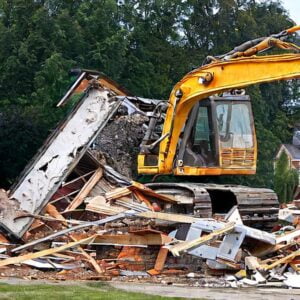

What Is The Time Frame For Obtaining A Demolition Permit In Kentucky?
Obtaining a demolition permit in Kentucky can be complicated, as it is important to follow the necessary steps and timelines for successful completion of any project. Knowing what is required to get a permit from the state will ensure that your demolition project goes smoothly. In this article, we’ll explore the time frame for obtaining a demolition permit in Kentucky.
First, it’s essential to understand that there are different rules depending on whether you are working on residential or commercial property. Residential properties may require additional permits that commercial properties do not need. It is also important to contact your local building department so they can provide guidance throughout the process.
The timeline for obtaining a permit varies based on several factors:
Permit Process
- Filing an application with all relevant information included
- Awaiting approval from the state authorities
- Reviewing plans and documents submitted by applicants
Inspection Requirements
- Arranging inspections before and after construction begins
- Meeting safety standards during inspection processes
Timeframe Factors
- Availability of inspectors and their schedules
- Processing speed of applications at government offices
Understanding these requirements helps ensure that your demolition permit is obtained quickly and meets all necessary guidelines. Seeking professional help from experts who specialize in demolitions may be beneficial if needed; many companies offer services specifically designed for getting permits for projects in Kentucky. By taking into account all aspects of obtaining a permit, you can be confident that your project moves forward successfully.
Are There Any Exemptions From Obtaining A Demolition Permit In Kentucky?
Ah, the irony of it all. On one hand we have regulations that must be met to ensure safety during construction and demolition projects in Kentucky – yet on the other, there are exemptions from obtaining a permit for certain demolition activities? You could almost say that someone is being given a free pass at times!
However, this isn’t quite accurate. The truth is that while there may be some exemptions from needing a permit in order to demolish something within the state, these exemptions come with their own set of rules and regulations. This ensures that any demolition activity which does not require a permit still follows necessary precautions and guidelines for safety purposes.
In short, although exemptions may exist for certain types of demolition projects in Kentucky, strict codes should still be followed to maintain public safety. Not following these codes can result in serious legal ramifications including costly fines or even jail time depending on the severity of the offense. Therefore, anyone planning on undertaking an exempt project should always consult local building laws first so they can proceed legally and safely.
Conclusion
Finally, the role of permits in Kentucky demolition projects is clear. Permits are a necessary part of any project and must be obtained before work can begin. The cost varies depending on the scope of the project but it’s important to remember that abiding by all regulations will help ensure safety and success in the long run. As we’ve seen, there are legal requirements for obtaining these permits along with specific exemptions from them as well.
Overall, understanding what goes into getting a permit for your next project is key when planning ahead. Knowing how much time you have to get one and if you even need one is essential so that everything runs smoothly throughout the entirety of the process. No matter what kind of property or building you’re looking at demolishing, having a solid grasp on what needs to be done beforehand can save an incredible amount of stress down the line.
So whether you’re a contractor, homeowner or business owner taking on a demolition project in Kentucky; ensuring that your paperwork is up-to-date should always remain top priority! Spending just a little bit extra time now could make all the difference later once construction takes place – so don’t forget those required permits!



